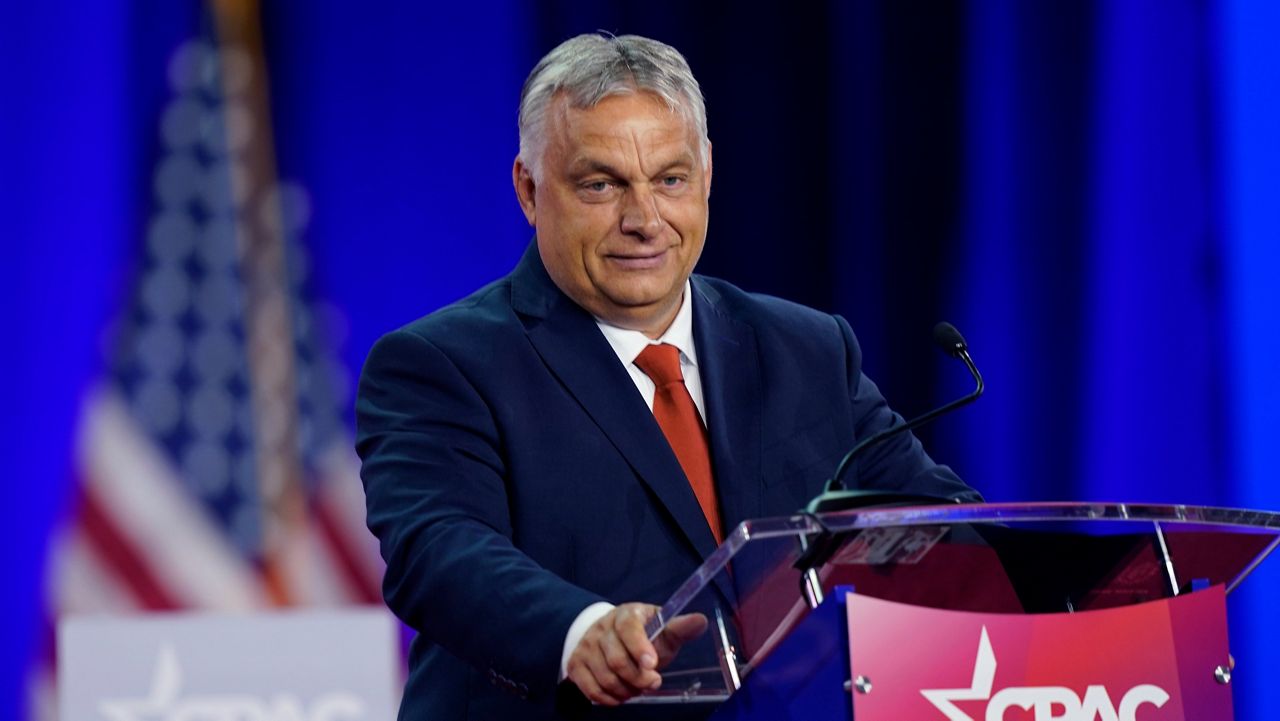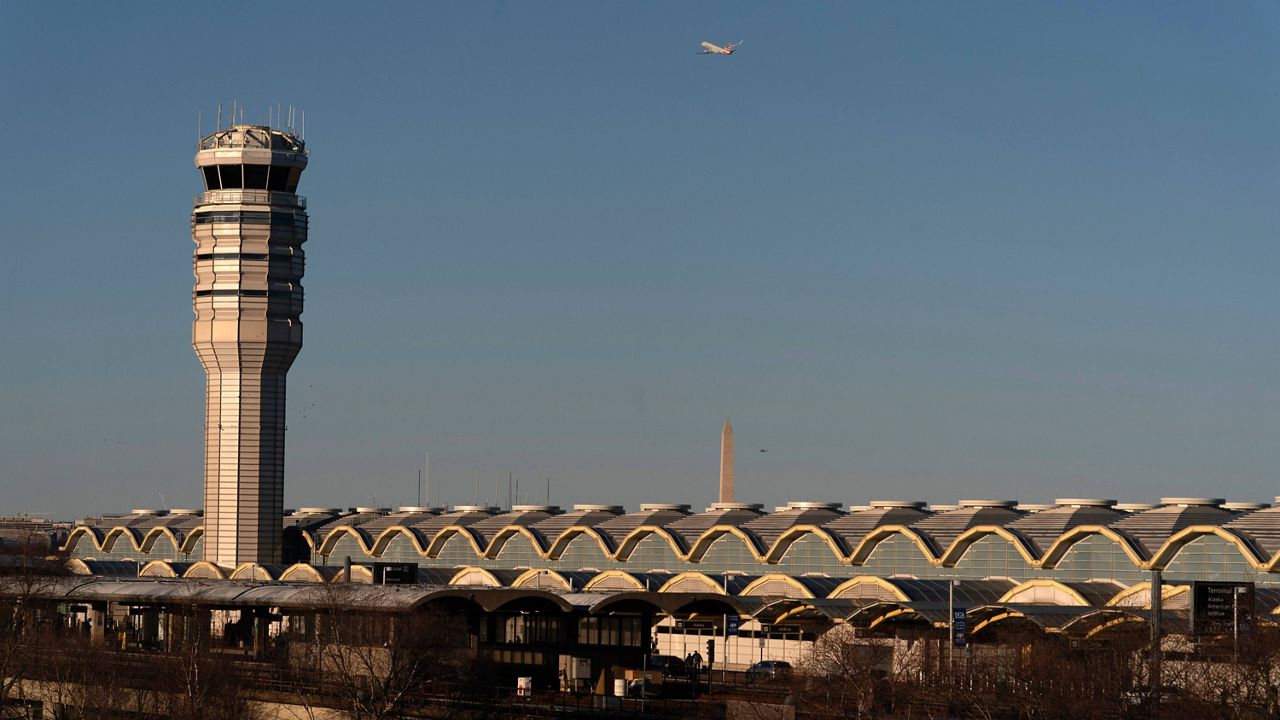President Joe Biden on Wednesday said he would direct education officials to forgive $10,000 in student loans for borrowers in the United States making less than $125,000 per year, or $20,000 for Pell Grant recipients, fulfilling a long-delayed campaign promise pushed for by Democrats and advocates for more than a year.
The president will also extend the student loan payment and interest pause for another four months, through Dec. 31. He said it would be the final time his administration extends the pause, after they’ve previously pushed it back four times. The latest pause was set to expire on Aug. 31.
"All this means people can start to finally crawl out from under that mountain of debt to get on top of their rent and their utilities, to finally think about buying a home or starting a family or starting a business," Biden said in a speech at the White House.
The White House also announced another key part of their loan relief effort that could aid future borrowers: reforms to the income-driven repayment plan system that would mean people making under a certain amount of money per year would end up paying less per month toward their undergraduate loans.
The changes would cap the monthly payment amount at 5% of a borrower's income, plus cover any unpaid monthly interest so the balance doesn't increase. Anyone who borrowed less than $12,000 will see the remainder of their loans forgiven after ten years, as long as they make payments toward the plan.
Biden said that "no high-income individual or high-income household ... will benefit from this action, period."
Progressive Democrats had called on the president to do much more by cancelling up to $50,000 in student debt, a move they said would reach many more people and help bridge the gap in debt that rests disproportionately on Black and Latino borrowers.
Still, the plan would likely eliminate student debt entirely for millions of Americans and wipe away at least half for millions more. It would apply to people making under $125,000 annually, or families making less than $250,000.
The nation’s federal student debt now tops $1.6 trillion after ballooning for years. More than 43 million Americans have federal student debt, with almost a third owing less than $10,000 and more than half owing less than $20,000, according to the latest federal data.
“Basically everyone with a federal student loan is going to have this right to some amount of debt cancellation,” said Mike Pierce, executive director of the Student Borrower Protection Center.
Plus, Biden noted that a large portion of Americans with loans would likely be eligible for $20,000 in forgiveness, citing federal data that estimates 60% of borrowers are Pell Grant recipients. Officials said that number was evidence that a large portion of debt weighs on low- to middle- income homes.
Qualification for debt cancellation will be based on either borrowers' 2020 or 2021 income, officials added, and it will require most people to fill out a "simple application" in the coming weeks.
Despite the previous calls to do more, Democrats largely cheered Biden's decision as "transformative."
"Today is a day of joy and relief," Sen. Elizabeth Warren, D-Mass., a staunch supporter of addressing student debt, wrote on Twitter, calling Wednesday's action "a powerful step to help rebuild the middle class. This will be transformative for the lives of working people all across this country."
The cost of the $10K forgiveness plan would reach close to $330 billion over ten years, according to a model from the University of Pennsylvania’s Wharton business school, not counting the additional money for Pell Grant recipients.
Republicans have called it an unfair burden on taxpayers who didn’t go to college or don’t have loans and claimed that will fuel inflation.
"President Biden's student loan socialism is a slap in the face to working Americans who sacrificed to pay their debt, every graduate who paid their debt, and every American who chose a different career path or volunteered to serve in our Armed Forces in order to avoid taking on debt," Senate Minority Leader Mitch McConnell wrote in a statement. "This policy is astonishingly unfair."
Sen. Mitt Romney, a former Republican presidential candidate, on Twitter called it an effort to "bribe the voters."
“My mom didn't go to college. She worked two jobs to keep the lights on & provide for my brother & me,” wrote Sen. Tim Scott, R-S.C., on Twitter. “President Biden wants Frances Scott & millions of other Americans to pick up the student loan bill for the wealthiest among us who carry the majority of the debt. That’s wrong.”
Biden responded to Republican criticism of his loan forgiveness plan, saying that while he understands "not everything I'm announcing today is going to make everybody happy," he said that he finds it "interesting how some of my Republican friends who voted for [the 2017] tax cuts ... think we shouldn’t be helping these folks."
The president also addressed those who "might think it's too little."
"I believe my plan is responsible and fair," Biden contended. "It focuses the benefit on middle-class and working families. It helps both current and future borrowers and will fix a badly broken system."
Pierce of the SBPC noted that forgiveness is money already “out the door.”
Asked about concerns over inflation, a senior administration official told reporters that the move to restart payments in 2023 and the move toward forgiveness "will largely offset each other."
Meanwhile, other advocates called the lower scale of debt forgiveness a potential “problem,” especially for groups like Black voters, who have been key to Biden’s political success.
“President Biden's decision on student debt cannot become the latest example of a policy that has left Black people - especially Black women - behind,” said NAACP President Derrick Johnson in a statement Tuesday, ahead of the official announcement. “This is not how you treat Black voters who turned out in record numbers and provided 90% of their vote to once again save democracy in 2020."
A Brookings Institution study from 2016 found Black borrowers owe almost twice as their white counterparts, on average.
Senior administration officials noted Wednesday that Black borrowers are twice as likely to be Pell Grant recipients, meaning they would get the $20,000 level of forgiveness.
Although Biden’s plan is narrower than what he initially proposed during the campaign, “he’ll get a lot of credit for following through on something that he was committed to,” said Celinda Lake, a Democratic pollster who worked with Biden during the 2020 election.
She described student debt as a “gateway issue” for younger voters, meaning it affects their views and decisions on housing affordability and career choices. A survey of 18- to 29-year-olds conducted by the Harvard Institute of Politics in March found that 59% of those polled favored debt cancellation of some sort — whether for all borrowers or those most in need — although student loans did not rank high among issues that most concerned people in that age group.
Pierce of the SBPC had warned in an interview Tuesday evening that any cancellation must come with reforms to the student loan repayment ecosystem. Many programs designed to lead to forgiveness, such as one that rewards public service, have not functioned as they should, leading to millions of rejections.
“If you have a low income over a long period of time, you have a right to have your debt cancelled,” he said. “The student loan safety net remains broken, and throwing people back into a broken student loan system is just going to produce the same chaos and financial distress that it caused back before the pandemic."










